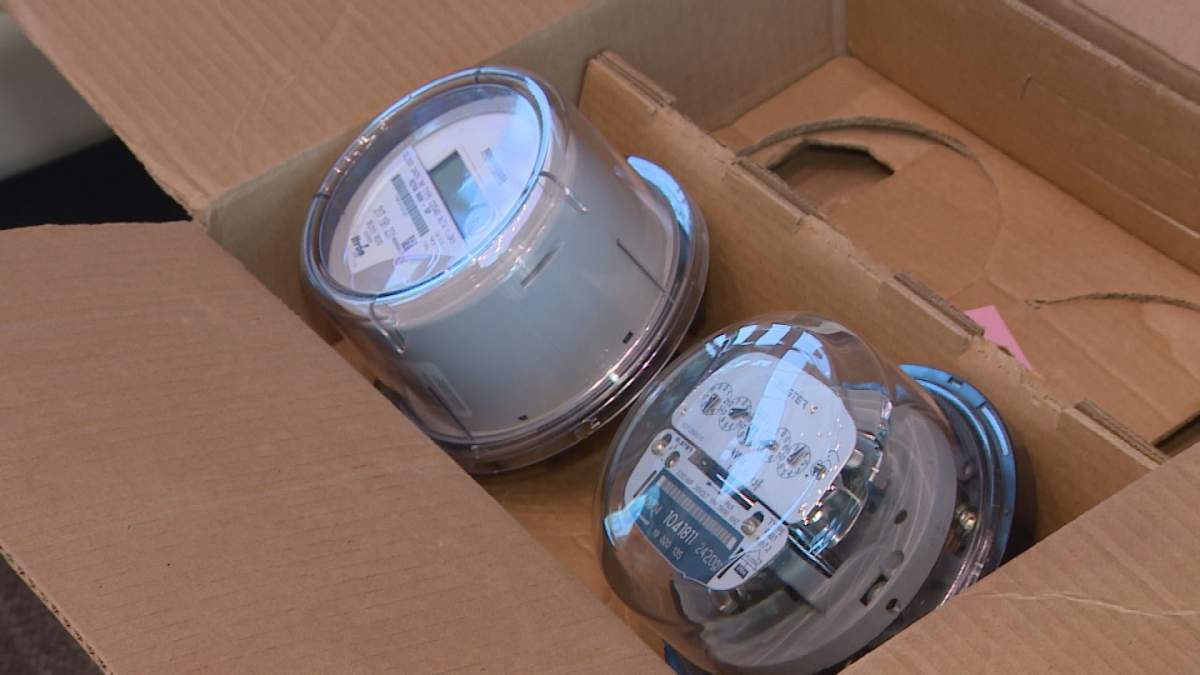Nova Scotia Power has received regulatory approval to install digital smart meters, which will collect data on customers’ power usage.

The Nova Scotia Utility and Review Board (UARB) has approved Nova Scotia Power’s plan to upgrade all of its customers.
“That will be 500,000 meters that we’ll be replacing with new modernized technology, so we’re very pleased with that decision and we’re looking forward to moving ahead,” said Karen Hutt, Nova Scotia Power’s president and CEO.
The technology will log customers’ energy use in intervals as frequently as 15 minutes. That data will then be sent to the utility though “a safe, secure, and private wireless network that will be built as part of the project.”
That means the meters will not require manual in-person readings, and the number of staff who read meters will be reduced by about 72 people.
READ MORE: Nova Scotia Power applies to UARB to implement ‘smart meter’ technology
Hutt says the data the meters collect could be valuable for consumers and the utility alike.
“For customers who do want to begin to really understand how electricity consumption occurs in their house and begin to make modifications around their own behaviour, they will have that information,” she said.

Get daily National news
“We will be collecting that and we will be looking at ways that we can develop value-add products and solutions for our customers.”
The new meters will not increase power rates because the $133-million project is expected to be offset by savings over its 20-year life.
That includes an estimated $27 million saved by offering lower power rates for customers who use power at times when demand is low.
“The reality is that if customers are prepared to shift their behaviour to other times of the day and that puts less stress on the system to serve them from a supply perspective, if there is a way we can recognize that benefit, we want to do that,” said Hutt.
The utility says it will spend the next year building and testing the secure communication network needed for the project.
WATCH: Smart meter program under scrutiny during annual EUB hearing in Saint John

Customers will be contacted “well in advance” of installation, which is expected to begin in late 2019 and finish by the end of 2020.
Those who do not want the meters can opt out and Nova Scotia Power will have to provide up front information on the costs of doing so.
Consumer advocate Bill Mahody says he supports the UARB’s decision.
“The board has reached the conclusion that the costs associated with the project are outweighed by the benefits that are likely going to come to consumers as a result for it, so from that perspective, it’s fully supported,”
In the past, the implementation of the devices has been controversial in certain provinces, including Saskatchewan and Ontario, where utilities have dealt with malfunctioning meters, cost overruns and fires.
Both Hutt and Mahody say that shouldn’t be a concern for Nova Scotians.
“There has been significant advancement in technology associated with smart meters, even over the last four or five years and that Nova Scotia Power’s application involves technology in 2018 that is as advanced as those requirement have become,” Mahody said.
“So some of the concerns that had come early in the adoption of smart meter technology have in fact been ironed out.”
- Canadian immigration officers investigating hundreds identified by extortion task force
- Carney unveils ‘Buy Canadian’ defence plan, says security can’t be a ‘hostage’
- Inflation cooled to 2.3% in January but food prices up again: StatCan
- Rhode Island shooting brought to ‘swift end’ by ‘good Samaritan’: police








Comments
Want to discuss? Please read our Commenting Policy first.